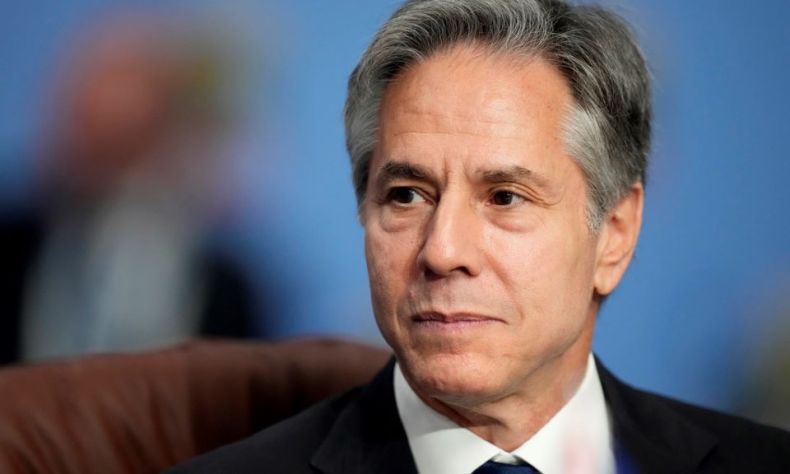
On the Korean Peninsula, North Korea fired an intermediate-range ballistic missile (IRBM) on Monday, coinciding with US Secretary of State Antony Blinken’s visit to Seoul. The launch, which sent the missile flying over 1,100 kilometers east before it splashed down into the sea, has renewed urgency for deeper cooperation between the United States, South Korea, and Japan.
Addressing a press conference just hours after the launch, Blinken emphasized the critical nature of trilateral collaboration. He underscored the importance of sharing real-time missile data and conducting joint military exercises as essential measures to counter North Korea’s growing missile capabilities.
“Today’s launch is just a reminder to all of us of how important our collaborative work is,” Blinken remarked. His comments come at a time of heightened security concerns, driven not only by Pyongyang’s provocative missile tests but also by its strengthening ties with Moscow.
Blinken expressed alarm over the burgeoning relationship between North Korea and Russia, highlighting intelligence that suggests Moscow intends to exchange space and satellite technology for North Korean military support in the Ukraine conflict. According to Washington, more than 1,000 North Korean soldiers have been killed or wounded in the war.
The implications of such a partnership are far-reaching, with potential advancements in North Korea’s missile and satellite capabilities posing new challenges for regional and global security. Blinken’s warning underscores a deepening strategic nexus that could further embolden Pyongyang.
Under President Joe Biden, significant strides were made in enhancing trilateral cooperation between the US, South Korea, and Japan. These efforts sought to bridge historical tensions between Seoul and Tokyo, focusing on mutual security interests in the face of North Korea’s persistent threats.
However, political uncertainty looms over the future of this trilateral framework. In South Korea, President Yoon Suk Yeol faces an impeachment trial following a dramatic political crisis. His declaration of martial law on December 3 led to his suspension from duties after a parliamentary vote last month.
If Yoon is permanently removed from office, an anticipated presidential election could usher in a liberal government, which has historically been critical of close ties with Tokyo. This political shift could challenge the continuation of the current cooperation momentum.
The political instability in South Korea has added a layer of complexity to the region’s security dynamics. Acting President Choi Sang-mok has stepped in to fulfill presidential duties amid Yoon’s impeachment trial, currently being heard by the Constitutional Court. Despite these challenges, Blinken expressed confidence in South Korea’s democratic institutions and their ability to navigate the crisis.
“We have serious concerns about President Yoon’s actions, but we trust in the resilience of South Korea’s democracy,” Blinken stated, reaffirming Washington’s commitment to its alliance with Seoul.
Monday’s missile test marks North Korea’s first launch since November 5, when it fired a salvo of short-range ballistic missiles off its east coast. While details of the latest missile remain unclear, experts point to North Korea’s advancements in solid-fuel technology.
Recent tests have included a new solid-fuel design, featuring a hypersonic glide vehicle capable of maneuvering and evading missile defenses. Solid-fuel missiles present significant strategic advantages; they are easier to store and deploy, require less logistical support, and are harder to detect compared to their liquid-fuel counterparts.
North Korea’s leader, Kim Jong-un, has publicly committed to advancing the country’s missile technology, with a focus on solid-fuel missiles. These developments align with Pyongyang’s broader strategy to enhance the survivability and readiness of its missile forces, posing a more persistent threat to regional stability.
The missile launch and the geopolitical developments surrounding it highlight the precarious security environment in Northeast Asia. With North Korea’s missile technology advancing and its ties with Russia deepening, the importance of a coordinated response by the US, South Korea, and Japan cannot be overstated.
The trilateral alliance faces significant hurdles, including political uncertainties in South Korea and the potential return of Donald Trump to the US presidency. Trump’s unpredictable foreign policy approach during his previous tenure raised concerns about the consistency and reliability of US commitments in the region.





